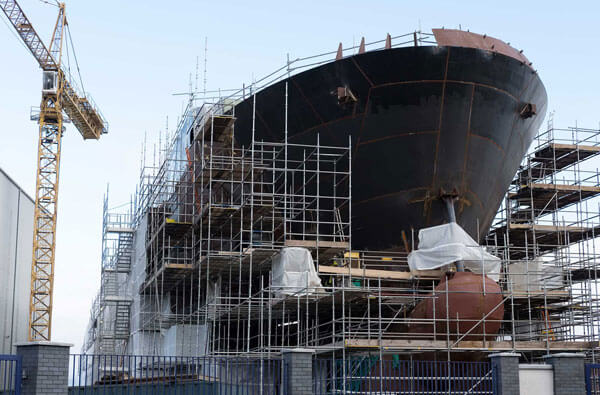Shipbuilding Industry
DDetail

The shipbuilding industry is involved in the construction, repair, and maintenance of ships and other maritime vessels. Here's a brief overview:
The shipbuilding process encompasses the design, engineering, fabrication, assembly, and outfitting of various types of vessels, including cargo ships, tankers, container ships, passenger liners, naval vessels, and offshore platforms. Shipbuilders employ advanced technologies, materials, and construction techniques to meet stringent safety, performance, and regulatory requirements.
Shipbuilding facilities range from small shipyards specializing in custom vessels to large-scale shipyards capable of constructing multiple ships simultaneously. The shipbuilding process typically begins with the design phase, where naval architects and engineers develop detailed plans and specifications based on customer requirements, regulatory standards, and operational needs.
Once the design is finalized, construction commences with the fabrication of hull sections, superstructures, and other components using steel, aluminum, or composite materials. Shipbuilders employ welding, cutting, bending, and machining techniques to shape and assemble the vessel's structural elements.
Assembling a ship involves joining prefabricated sections, outfitting with propulsion systems, electrical systems, navigation equipment, and interior fittings, and conducting rigorous testing and inspections to ensure quality, safety, and seaworthiness. Upon completion, the vessel undergoes sea trials to evaluate performance and functionality before delivery to the customer.
The shipbuilding industry serves various markets and customers, including commercial shipping companies, government agencies, navies, and offshore energy companies. Shipbuilders cater to diverse requirements, offering vessels tailored to specific applications, such as bulk carriers for transporting commodities, oil tankers for energy transportation, cruise ships for passenger travel, and military vessels for defense and security purposes.
The shipbuilding industry is subject to economic cycles, geopolitical factors, environmental regulations, and technological advancements that influence demand, competition, and market dynamics. Globalization has led to the emergence of shipbuilding hubs in regions such as East Asia, Europe, and North America, each specializing in different types of vessels and serving distinct market segments.
In recent years, sustainability and environmental stewardship have become increasingly important considerations in shipbuilding. Efforts to reduce emissions, improve fuel efficiency, and adopt eco-friendly technologies are driving innovation and shaping the future of the industry.
Overall, the shipbuilding industry plays a critical role in global trade, transportation, defense, and maritime commerce, contributing to economic growth, job creation, and technological advancement worldwide.